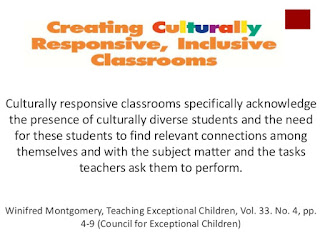Growth mindset in education & life
Why is the achievement gap such a big difference in the United States between cultures and society? Why is it that our Latino and African Americans students drop-out of school at a higher rate than White or Asian students? As a Latina and being a parent of multicultural kids, my husband and I want the best for our children just like all parents want the best for their children. As we discuss, I explain to my husband that what I want from the school that they will attend in this upcoming school year is a diverse background of students and educators. We learn best when there are different perspectives, discussions,a positive and equitable learning environment.
“Research shows that racial and socioeconomic diversity in the classroom can provide students with a range of cognitive and social benefits.” tcf.org
- Students in integrated schools have higher test scores.
- Students in integrated schools are more likely to enroll in college.
- Students in integrated schools are less likely to drop out.
- Integrated schools help reduce racial achievement gaps.
- Integrated classrooms encourage critical thinking, problem solving, and creativity.
- Attending a diverse school can help reduce bias and counter stereotypes.
- Learning in integrated settings can enhance students leadership skills.
- School integration promotes more equitable access to resources.
- Diverse classrooms prepare students to succeed in a global economy.
As a parent, I am thinking, reflecting and want to learn more. I have attended regular public schools all my life and my husband has attended private school throughout his K-12 academic years. We have different perspectives in education but still believe that children should be provided with the best education no matter their socioeconomic and racial background. As a public school educator, I see plenty of good educators that believe and teach our students to persevere and grow but I also believe that our public schools need plenty of more resources, more educators in each classroom, more discussion about diversity and culturally responsive teaching, more diverse books, more enrichment time for our students and make sure each classroom and school has a strong positive community.
While reading the book “Culturally Responsive Teaching and the brain”, I have read an important part that is vital to the environment that we give our children. “If the environment isn’t hostile but simply unwelcoming, the brain doesn't produce enough oxytocin and begins to experience anxiety. This anxiety triggers the sympathetic nervous system, making one think he is in danger because the brain doesn’t experience a sense of community”. “It becomes imperative to understand how to build positive social relationships that signal to the brain a sense of physical, psychological, and social safety so that learning is possible.” -Zaretta Hammond cultural responsive teaching
If the students/child/adult doesn't feel welcomed or safe at school, home or in a community, then it will be harder for them to focus and make relationships and connections with others. This also leads me to your brain and how powerful it is. Having a growth mindset is also important not only in education but throughout our lives. Most of us have a fixed mindset, we think a certain way, certain people do certain things and learning will be hard for certain students and/or people. The way that we think and believe in others and ourselves will lead to either failure or success. The way that we talk about others (negative or positive) will lead to hate or love. It's easier for most people to focus on the negative than the positive. That is what a fixed mindset is all about not believing that people or a community of people can achieve higher levels in their life. “A negative stereotype is a fixed mindset belief that certain abilities are inherent and that your group doesn't have them”. “Only in growth mindset cultures, where teachers and administrators are encouraged to fulfill their potential, will they be able to help their students fulfill their potential in schools that are free of bias”. -Carol S. Dweck
mindsets and equitable education
Our mind creates who we are! If we believe then we will achieve.

